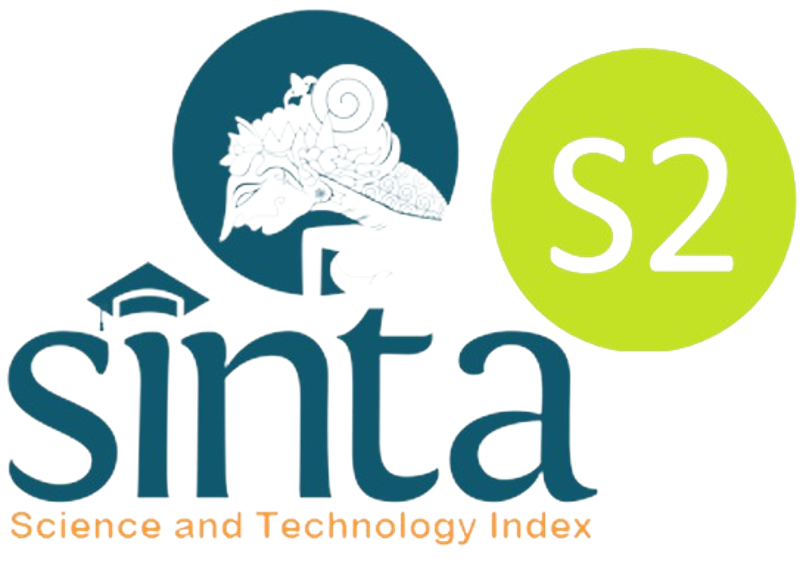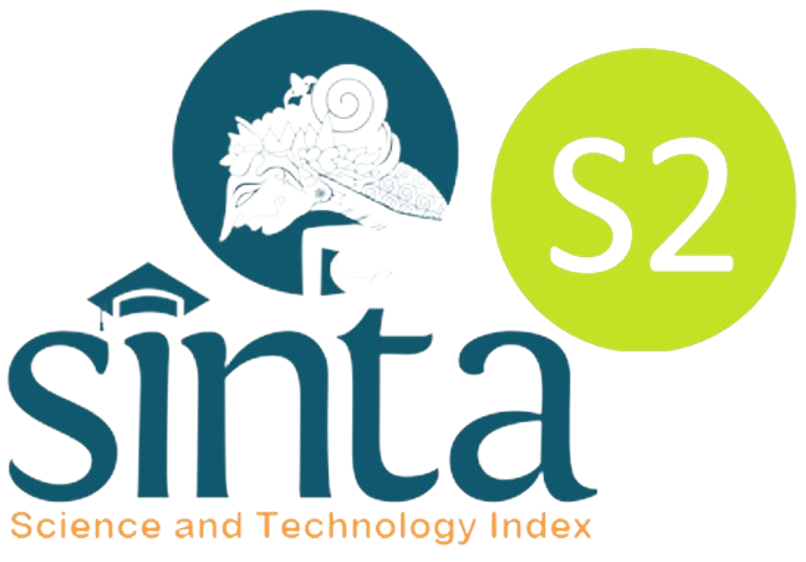Effectiveness of Physics Learning with PBL Model Assisted by 3D Webbook Integrated with Environmental Learning in Improving Students' Critical Thinking Skills
DOI:
https://doi.org/10.26740/jpps.v14n2.p157-172Keywords:
3D Webbook , Critical Thinking Skills , Environmental Learning , Global Warming , Problem Based LearningAbstract
Objective: This study aims to examine the effectiveness of applying the Problem Based Learning (PBL) model assisted by 3D Webbook integrated with Environmental Learning in improving students' critical thinking skills on global warming material. Method: This study used a pre-experiment method with a One-Group Pretest-Posttest design. The research subjects consisted of two classes (X-1 and X-2), each comprising 36 students, selected through purposive sampling technique. The instruments used included a critical thinking skills test in the form of descriptive questions and an observation sheet to assess the implementation of learning syntax. The validity of the device was assessed by experts using a five-point scale and the reliability test was carried out using SPSS with the Cronbach's Alpha formula. Results: (1) The average pretest scores of classes X-1 and X-2 were 35.61 and 33.11, respectively, increasing to 85.11 and 83.78 on the posttest. (2) N-gain scores in both classes were categorized as high. (3) Syntax implementation reached an average of 93%. Novelty: This research introduces an innovation by integrating the PBL model with digital technology through a 3D Webbook combined with Environmental Learning. This integration enables flexible access to materials without requiring large file downloads and contextualizes relevant environmental issues to support the development of 21st-century critical thinking skills.
Downloads
References
Adilla, I. N., & Jatmiko, B. (2021). Keefektifan pembelajaran daring fisika SMA berbasis probing promting untuk meningkatkan keterampilan berpikir kritis peserta didik. PENDIPA: Journal of Science Education, 5(3), 426–435. https://doi.org/10.33369/pendipa.5.3.426-435
Afiati, B. S., Arjudin, A., Rumansyah, R., & Hasanah, U. (2025). Penerapan model pembelajaran berbasis masalah (PBL) untuk meningkatkan aktivitas dan hasil belajar peserta didik kelas X-12 SMA Negeri 1 Mataram. Jurnal Pendidikan, Sains, Geologi, Dan Geofisika (GeoScienceEd Journal), 6(1), 418–422. https://doi.org/10.29303/goescienceed.v6i1.547
Afikah, A., Jumadi, J., & Rohaeti, E. (2024). Feasibility of digital flipbooks as physics teaching media in terms of reproduction. Jurnal Penelitian & Pengembangan Pendidikan Fisika, 10(2), 243–260. https://doi.org/10.21009/1.10204
Arzak, K. A., & Prahani, B. K. (2023). Practicality of augmented reality books in physics learning: A literature review. JPPS (Jurnal Penelitian Pendidikan Sains), 12(2), 138–154. https://doi.org/10.26740/jpps.v12n2.p138-154
Cai, S., Liu, C., Wang, T., Liu, E., & Liang, J. (2021). Effects of learning physics using augmented reality on students’ self‐efficacy and conceptions of learning. British Journal of Educational Technology, 52(1), 235–251. https://doi.org/10.1111/bjet.13020
Erlangga, S. Y., Poort, E. A., Winingsih, P. H., Manasikana, O., & Dimas, A. (2023). Meta-Analisis: Effect size model pembelajaran berbasis masalah pada kemampuan berpikir tingkat tinggi (HOTS) dan pemahaman konseptual siswa dalam fisika. Compton: Jurnal Ilmiah Pendidikan Fisika, 9(2), 185–198. https://doi.org/10.30738/cjipf.v9i2.15685
Facione, P. A. (2015). Critical thinking: What it is and why it counts. Insight Assessment.
Hake, R. R. (1998). Analyzing change/gain score. Dept: Of Physics, Indiana University.
Halilah, H. F., Rusdiana, D., & Novia, H. (2023). Efektivitas e-book interaktif pada topik pemanasan global untuk melatihkan keterampilan berpikir kritis peserta didik tingkat SMA. Jurnal Pendidikan Indonesia, 4(11), 1263–1274. https://doi.org/10.59141/japendi.v4i11.2414
Halimah, S., Usman, H., & Maryam, S. (2023). Peningkatan kemampuan berpikir kritis dalam pembelajaran ipa melalui penerapan model pembelajaran problem based learning (PBL) di sekolah dasar. Jurnal Syntax Imperatif Jurnal Ilmu Sosial dan Pendidikan, 3(6), 403–413. https://doi.org/10.36418/syntax-imperatif.v3i6.207
Haqque, A., Hasbiyati, H., & Afandi, B. (2023). Pengaruh multimedia buku digital materi pencemaran lingkungan terhadap hasil belajar siswa. Eduproxima : Jurnal Ilmiah Pendidikan IPA, 5(2), 234–241. https://doi.org/10.29100/.v5i2.4097
Haratua, C. S., Lestari, A., Abdul, R. C., Haryanti, W. D., Suratno, S., & Ardiansyah, T. (2025). Peran matematika dan ilmu pengetahuan alam dalam menghadapi tantangan SDM di society 5.0. JIIP - Jurnal Ilmiah Ilmu Pendidikan, 8(1), 218–224. https://doi.org/10.54371/jiip.v8i1.6635
Hutabarat, R. R. (2022). Pengembangan pocket e-book fisika menggunakan aplikasi flipbook pada materi impuls dan momentum. Nucleus, 3(2), 133–138. https://doi.org/10.37010/nuc.v3i2.982
Jatmiko, B., Prahani, B. K., Munasir, M., Imam Supardi, Z. A., Wicaksono, I., Erlina, N., Pandiangan, P., Althaf, R., & Zainuddin, Z. (2018). The comparison of or-ipa teaching model and problem based learning model effectiveness to improve critical thinking skills of pre-service physics teachers. Journal of Baltic Science Education, 17(2), 300–319. https://doi.org/10.33225/jbse/18.17.300
Judijanto, L., Hartati, T., Apriyanto, A., Pamangin, W. W., & Haluti, F. (2025). Pendidikan abad 21: Menyambut transformasi dunia pendidikan di era society 5.0. PT. Sonpedia Publishing Indonesia.
Jufriadi, A., & Budianto, H. (2023). Penerapan model pembelajaran problem based learning (pbl) berbantu video untuk meningkatkan kemampuan berpikir kritis peserta didik pada materi pemanasan global. Jurnal Pembelajaran, Bimbingan, Dan Pengelolaan Pendidikan, 3(6), 473–483. https://doi.org/10.17977/um065v3i62023p473-483
Kholiq, Abd. (2020). Development of B D F-AR 2 (physics digital book based augmented reality) to train students’ scientific literacy on global warming material. Berkala Ilmiah Pendidikan Fisika, 8(1), 50. https://doi.org/10.20527/bipf.v8i1.7881
Lidiawati, M. P. Y. (2024). The role of e-books in learning physics: literature review. Physics Learning and Education, 2(2), 48–55. https://doi.org/10.24036/ple.v2i2.76
Mahrunnisya, D. (2023). Keterampilan pembelajar di abad ke-21. JUPENJI: Jurnal Pendidikan Jompa Indonesia, 2(1), 101–109. https://doi.org/10.57218/jupenji.Vol2.Iss1.598
Mantau, B. A. K., & Talango, S. R. (2023). Pengintegrasian keterampilan abad 21 dalam proses pembelajaran (literature review). Irfani, 19(1), 86–107. https://doi.org/10.30603/ir.v19i1.3897
Musaad, F., & Suparman, S. (2023). Pengembangan e-modul berbasis problem based learning untuk memacu kemampuan berfikir kritis abad-21. Aksioma: Jurnal Program Studi Pendidikan Matematika, 12(3), 3162. https://doi.org/10.24127/ajpm.v12i3.6119
Neswary, S. B. A., & Prahani, B. K. (2022). Profile of students’ physics critical thinking skills and application of problem based learning models assisted by digital books in physics learning in high school. Jurnal Penelitian Pendidikan IPA, 8(2), 781–789. https://doi.org/10.29303/jppipa.v8i2.1444
Nursaya’bani, K. K., Falasifah, F., & Iskandar, S. (2025). Strategi pengembangan pembelajaran abad ke-21: Mengintegrasikan kreativitas, kolaborasi, dan teknologi. JIIP - Jurnal Ilmiah Ilmu Pendidikan, 8(1), 109–116. https://doi.org/10.54371/jiip.v8i1.6470
Prahani, B. K., Rizki, I. A., Nisa’, K., Citra, N. F., Alhusni, H. Z., & Wibowo, F. C. (2022). Implementation of online problem-based learning assisted by digital book with 3D animations to improve student’s physics problem-solving skills in magnetic field subject. Journal of Technology and Science Education, 12(2), 379. https://doi.org/10.3926/jotse.1590
Pratiwi, M., Astuti, B., Subali, B., & Nurbaiti, U. (2020). Profil literasi sains peserta didik smp terhadap mitigasi bencana pemanasan global di kota semarang. Prosiding Seminar Nasional Fisika, 1(1), 27–32.
Putri, W. I., Sundari, P. D., Mufit, F., & Dewi, W. S. (2023). Analisis keterampilan berpikir kritis siswa sma pada materi pemanasan global. Jurnal Ilmiah Profesi Pendidikan, 8(4), 2428–2435. https://doi.org/10.29303/jipp.v8i4.1787
Qotrunnada, N. A., & Prahani, B. K. (2022). Profile of PBL model assisted by digital books to improve problem solving ability of high school students on dynamic fluids. Jurnal Penelitian Pendidikan IPA, 8(3), 1175–1183. https://doi.org/10.29303/jppipa.v8i3.1451
Sari, I. P., Nanto, D., & Putri, A. A. (2022). Pengaruh hasil belajar pendidikan fisika siswa menggunakan teknik meta-analisis dengan model PBL (Problem Based Learning). Jurnal MENTARI: Manajemen, Pendidikan Dan Teknologi Informasi, 1(1), 20–28. https://doi.org/10.34306/mentari.v1i1.124
Sari, M. W. N., & Airlanda, G. S. (2022). Pengembangan e-book dengan strategi problem based learning dalam berpikir kritis dan kreatif. EDUKATIF: Jurnal Ilmu Pendidikan, 4(4), 5845–5851. https://doi.org/10.31004/edukatif.v4i4.3232
Sugiyono. (2022). Metode penelitian kuantitatif, kualitatif dan R&D. Alfabeta.
Syamsinar, S., Ali, S., & Arsyad, M. (2023). Pengaruh keterampilan berpikir kritis dan motivasi berprestasi terhadap hasil belajar fisika peserta didik di SMA Negeri 2 Gowa. Jurnal Penelitian Pendidikan IPA, 9(1), 322–331. https://doi.org/10.29303/jppipa.v9i1.2327
Tanjung, A. W. S., Bektiarso, S., & Lesmono, A. D. (2023). Pengaruh model pembelajaran berbasis masalah disertai sumber belajar lingkungan terhadap hasil belajar fisika dan kemampuan berpikir kritis peserta didik. JPF (Jurnal Pendidikan Fisika) Universitas Islam Negeri Alauddin Makassar, 11(1), 67–75. https://doi.org/10.24252/jpf.v11i1.35163
Utari, W. M., Gunada, I. W., Makhrus, Muh., & Kosim, K. (2023). Pengembangan e-modul pembelajaran fisika model problem based learning berbasis flipbook untuk meningkatkan keterampilan berpikir kreatif peserta didik. Jurnal Ilmiah Profesi Pendidikan, 8(4), 2724–2734. https://doi.org/10.29303/jipp.v8i4.1822
Wardani, D. A. W. (2023). Problem Based Learning: Membuka peluang kolaborasi dan pengembangan skill siswa. Jawa Dwipa, 4(1), 1–17.
Wulandari, S., Purdiyah, P., Mardaya, & Annovasho, J. (2022). Studi literatur : Penerapan e-book dalam pembelajaran fisika. Gravitasi: Jurnal Pendidikan Fisika Dan Sains, 5(02), 7–17. https://doi.org/10.33059/gravitasi.jpfs.v5i02.6500
Yusuf, M., ‘Ardhuha, J., & Hikmawati, H. (2022). Pengembangan perangkat pembelajaran model problem based learning untuk meningkatkan pemahaman konsep fisika dan kemampuan berpikir kritis peserta didik. Jurnal Ilmiah Profesi Pendidikan, 7(2), 250–258. https://doi.org/10.29303/jipp.v7i2.457
Zetriuslita, Z., Suripah, S., Dahlia, A., & Rohana, I. (2022). Validitas perangkat pembelajaran matematika berbasis realistic mathematic education pada materi persamaan linear dua variabel kelas VIII SMP. Jurnal Cendekia: Jurnal Pendidikan Matematika, 6(02), 1360–1373. https://doi.org/10.31004/cendekia.v6i2.1345
Downloads
Published
How to Cite
Issue
Section
License
Copyright (c) 2025 JPPS (Jurnal Penelitian Pendidikan Sains)

This work is licensed under a Creative Commons Attribution-ShareAlike 4.0 International License.
 Abstract views: 263
,
Abstract views: 263
, PDF Downloads: 709
PDF Downloads: 709












